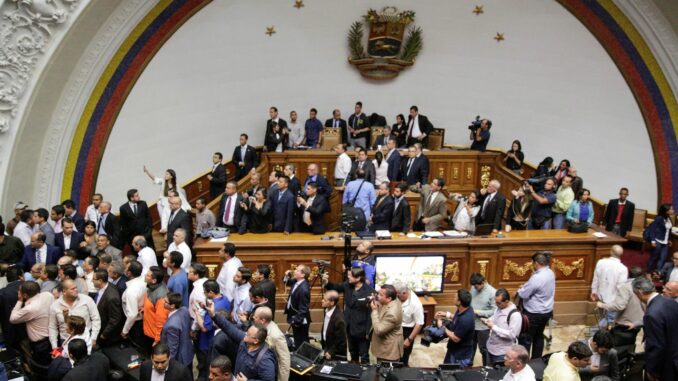
The Venezuelan National Assembly has announced on October 29 the creation of parliamentary friendship groups with six countries, including Portugal and Guinea-Bissau. These groups, led by deputies from the ruling United Socialist Party of Venezuela (PSUV), also extend to Egypt, Senegal, Jordan, and Kazakhstan, aiming to bolster diplomatic and cooperative relations with each nation.
The Assembly’s friendship groups will focus on strengthening partnerships through parliamentary diplomacy, fostering dialogue and cooperation with nations aligned with Venezuela’s interests. These new groups add to an existing network with countries such as Nepal, Kyrgyzstan, Iraq, Bahrain, Azerbaijan, Laos, Lebanon, East Timor, Kenya, Gambia, Malaysia, and the African Union.
In particular, Guinea-Bissau and other nations in the group are expected to benefit from initiatives that promote shared interests in political, economic, social, and cultural spheres. The groups aim to encourage mutual exchanges, collaboration on legislative solutions, and recognition of the contributions of their respective diaspora communities.
Venezuela recently held presidential elections, with the National Electoral Council declaring incumbent President Nicolás Maduro the winner with over 51% of the vote. However, the opposition disputes these results, claiming their candidate, Edmundo González Urrutia, won nearly 70% of the vote. Allegations of fraud have led to protests, marked by clashes with security forces, resulting in over 2,400 arrests, 27 deaths, and 192 injuries. The government has mobilized security forces, citing concerns about a potential coup and urging citizens to report protest organizers via the VenAPP application.
The Venezuelan non-governmental organization Foro Penal reports that 1,953 people are currently detained for political reasons, including both civilians and military personnel—a record high for the 21st century in Venezuela.
